Year 6
Our vision & values
Our vision is for all children to:
- be knowledgeable, confident communicators;
- grow in kindness and empathy;
- be inspired, creative learners.
Our core values are:
Resilience - In year 6, this means:
- Not giving up when things are tough.
- I can’t do it … yet!
- Making mistakes is part of learning.
- Collaborate
- Accept who you are.
- Be kind to yourself.
- Take one step at a time.
- Share your worries.
- Be the best that you can be.
Kindness and empathy - In year 6 we build on our learning about kindness and think more about empathy:
How will my actions make that person feel?
How could I make things better?
Helping someone when they are hurt or sad.
Creativity - In year 6, this means sharing your ideas and trying new things; solving problems both with learning and relationships. We question information put in front of us and creatively think about alternate views or interpretations.
Our curriculum
READING
In Y6, we will be using Padlet.com to track and update reading activities. Each Monday, a new reading task will be assigned on Padlet, which your child will need to complete by Friday morning. This allows the students to work on their reading assignments at their own pace throughout the week.
Here are a few key points to remember:
- Every Monday, a new reading task will be posted on Padlet.
- Your child should add their response under their name.
- The title of their response should be the date they are writing the record.
- The QR code to access Padlet is below
Please encourage your child to complete their reading tasks and update Padlet regularly. If you have any questions or need further clarification, feel free to contact the teacher.
We use the CUSP reading curriculum and we use our literature spine (and related supplementary texts) to ensure our children are exposed to a wide range of stories, poems and non-fiction regularly.
Our Literature Reading Spine:

HANDWRITING
We use a programme called Letterjoin for our handwriting. It’s really useful for parents and carers to see how children learn letter formation using the app or desktop website. Children can also practise using a tablet at home.
In Year 6, most children are writing fluently using joins. However some children still require some extra practice. Some children receive handwriting interventions, but extra practice at home would help too.
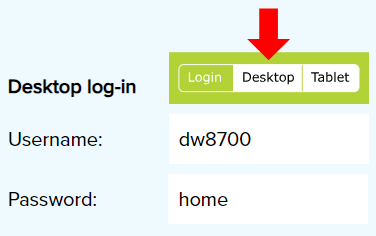
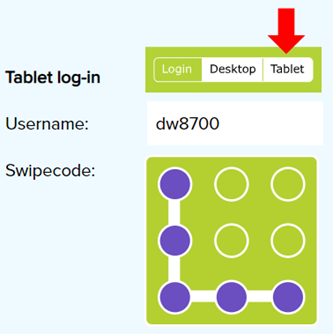
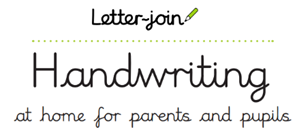
You can have a parent user manual as well. Just ask your teacher and we can give you a copy.
We encourage children to take care with their handwriting and use a simple motivation chart, which is stuck in the front of the writing books and teachers stamp each half-term. We have a special assembly each half-term to celebrate progress.
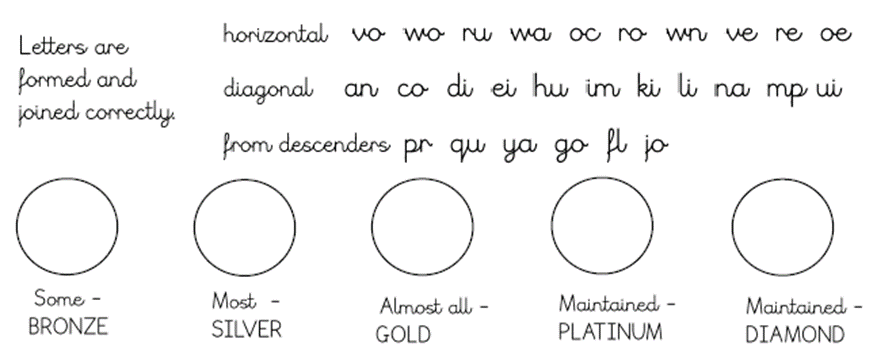
SPELLING
We teach spelling in Y6 primarily through the CUSP spelling programme. Below is an overview of the teaching sequence:
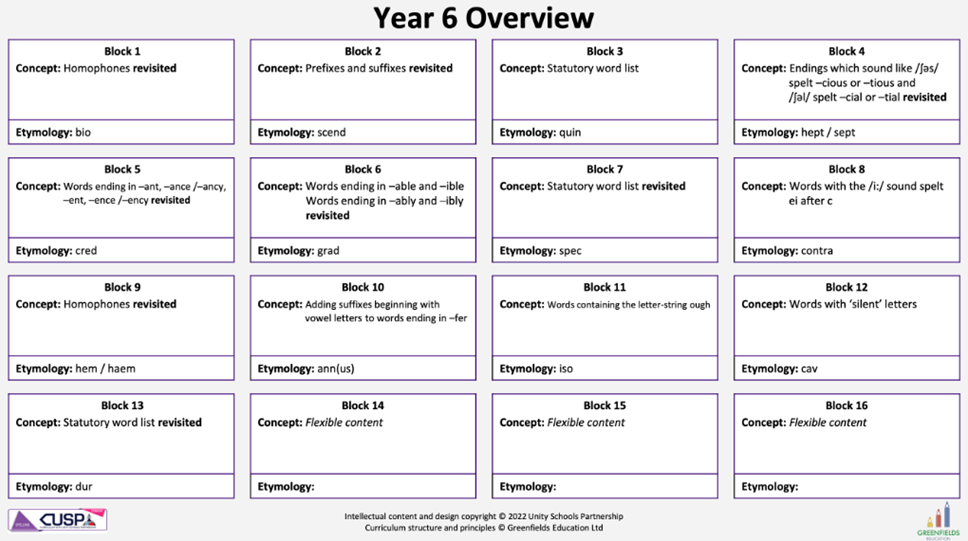
Alongside explicit spelling lessons, we also use Spelling Shed, a subscription website. We also use a programme called Wordshark to support specific children.
 Throughout school, we want children to apply their spelling knowledge in their independent writing. However, we also don’t want worry about spelling to prevent them from writing fluently. We teach them to ‘dotty underline’ a word if they are unsure of the spelling and an adult can help them when they are free.
Throughout school, we want children to apply their spelling knowledge in their independent writing. However, we also don’t want worry about spelling to prevent them from writing fluently. We teach them to ‘dotty underline’ a word if they are unsure of the spelling and an adult can help them when they are free.
If you do any writing at home, try the same approach. If your child says, “How do you spell …?”, encourage them to say the sounds as they write, then dotty underline. Praise a good phonetic attempt and then correct them.
WRITING
We use the CUSP writing curriculum.
Below is an overview of the genres taught throughout the year:

We also use a motivation chart stuck in the front of the books, focusing on handwriting and proofreading. Teachers stamp each half-term and we have a special assembly each half-term to celebrate progress.
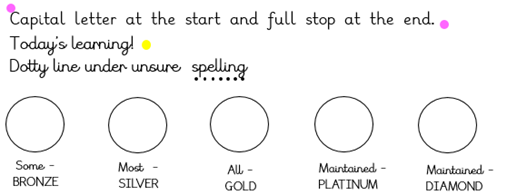
If your child does any writing at home, get them to proof-read for punctuation. It’s a really important habit.
MATHEMATICS
We use a maths scheme called White Rose Maths. Learning is blocked by topic and each lesson is broken down into small steps and led by the teacher using the interactive tools.
All children have a workbook for the independent phase of the lesson and each lesson usually has 4 or 5 sections, which get progressively more challenging. Not all children complete each section every lesson, which is ok.
We also do something called a maths review, where we revise all the key knowledge that has been taught. If you would like a copy of this to work on at home, please ask your class teacher. Fluency in the maths review really helps.
We also do regulalar maths investigations , which is often open-ended and a good challenge for our more confident mathematicians. This is the coverage timetable for the year with White Rose:
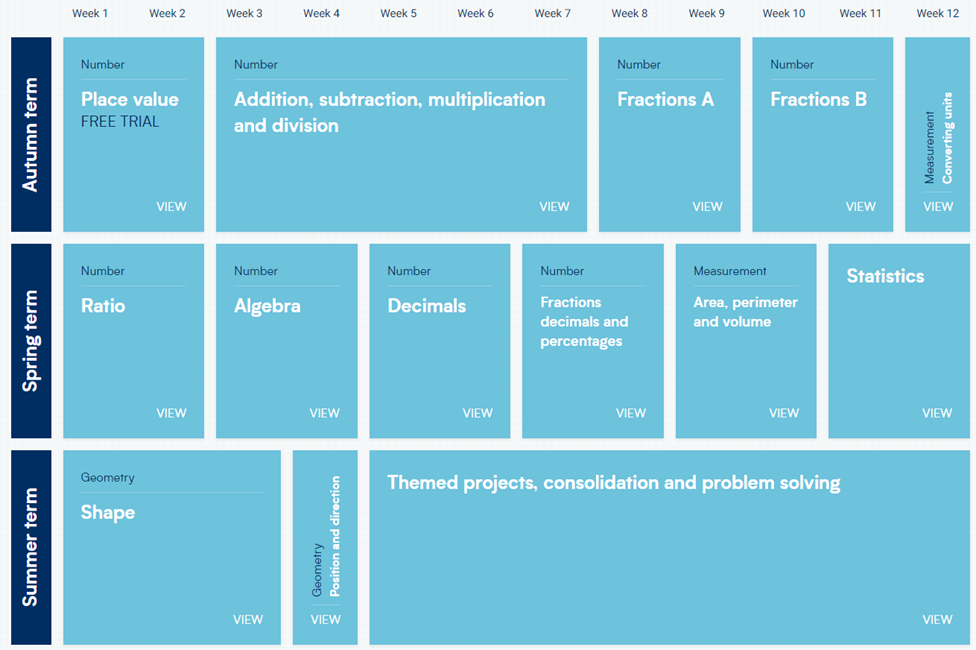
 We also use an app called TTRockstars. It’s an online times table practice tool that has several motivational features. The teacher can track progress and identify misconceptions using the teacher dashboard, as well as track time spent practising.
We also use an app called TTRockstars. It’s an online times table practice tool that has several motivational features. The teacher can track progress and identify misconceptions using the teacher dashboard, as well as track time spent practising.
We expect children to use this at home regularly. Your teacher will have provided you with a login/password. Please ask if you need a reminder.
Science, Geography, History & Art
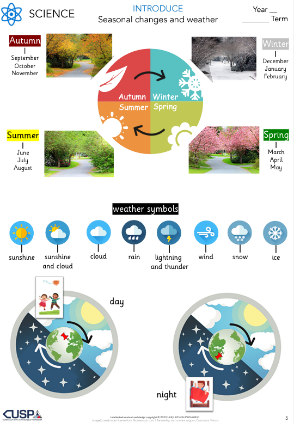 We use the CUSP curriculum for these subjects and a useful resource that we have for parents and carers is what is called a knowledge organiser for each subject.
We use the CUSP curriculum for these subjects and a useful resource that we have for parents and carers is what is called a knowledge organiser for each subject.
Essentially they show all the things the children are learning in each subject across the year. It’s really useful for a dinner time conversation. You could ask each other questions to test your child’s (and your) knowledge. Due to copyright, we can’t publish these on our website. However, you can get a pack from your class teacher or from the school office.
Design technology
We created our own curriculum, which we’re proud of. In Year 6, we learn about food (curry), structures (bridges) and electrical systems.
We have knowledge organisers to share for each topic. It may help if your child wants to do some more designing and making at home!
Computing
We follow the code.org curriculum for our coding sessions. The teacher sets the coding challenge and the children use their iPads to go through a series of problems to solve.
In year 6 we also learn how to use GarageBand, Stop Motion animation and follow the Internet Legends online safety curriculum.
French
CUSP French is taught from Years 3 – 6. Each year group has 5 blocks of teaching. Additional weeks are used for consolidation, revisiting or enrichment. French is usually taught in 2 x 15-20 minute lessons each week.
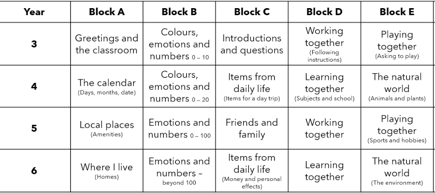
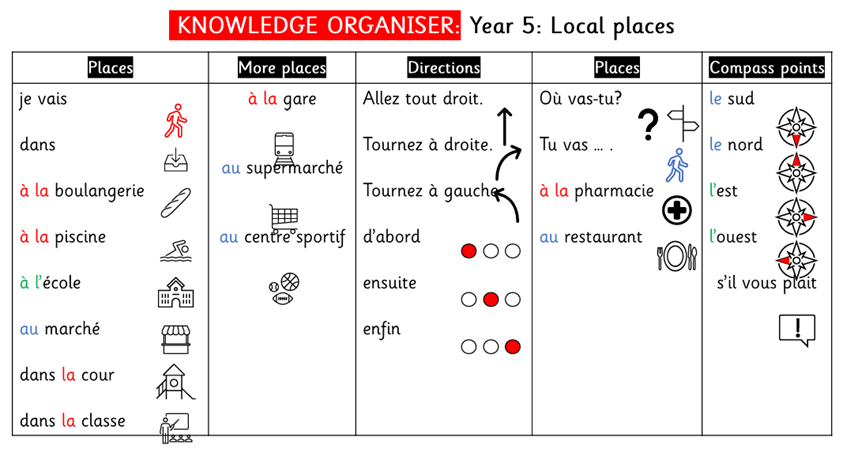
We have knowledge organisers for each block, also available for home reference.
RE
As a Church of England school, Religious Education is a core subject that children study each week. Our curriculum is designed to enable pupils to gain an increasingly deep understanding of both Christianity and a range of global religions and world views. RE at St. Margaret’s allows children to engage with challenging questions of meaning and purpose raised by human experience. Children are encouraged to think critically and nurture an appreciation of and respect for the differences, similarities and changes within all the religions and world views studied. Lessons contain a variety of learning activities, including debate, group work and drama, as well as studying Biblical text. They are planned around a key learning question for each half-term.
Our learning questions are as follows:

Music
We have music with Mr Brown on Wednesdays and some of us are in Rockband, which is on a Monday or Tuesday. Individual and group instrumental lessons take place throughout the week.
PE
We have PE on Wednesdays with Mr Park and Dance on Wednesdays with Mrs Burns. However, we are active every day, doing our playground runs every Tuesday and Thursday. On Thursdays, we often go to Manor House Gardens for our park run.
The year on a page
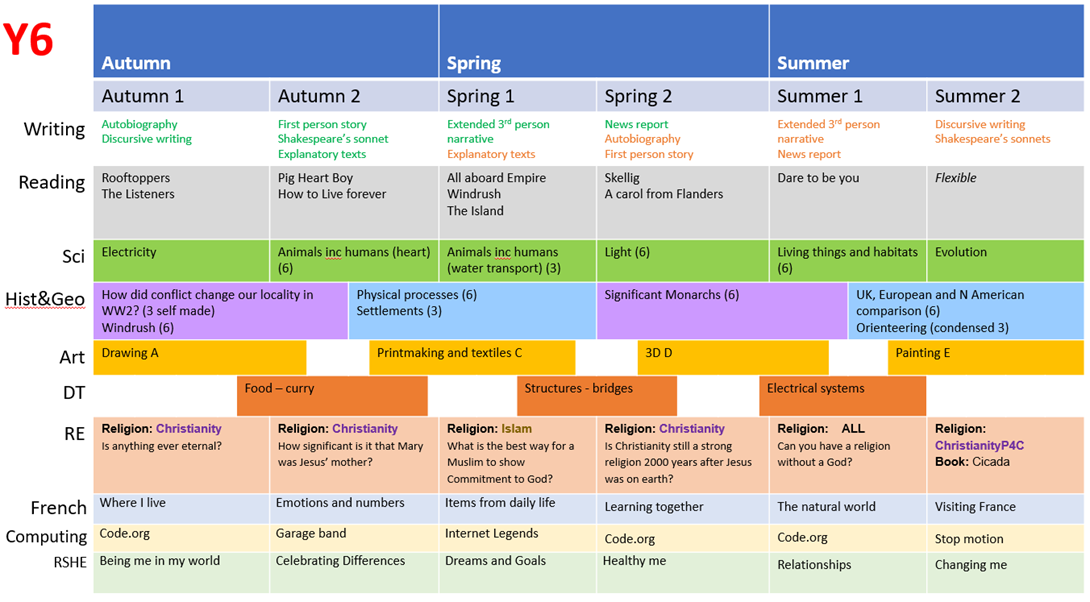
Our weekly timetable
*this is our normal routine, but sometimes timings may change
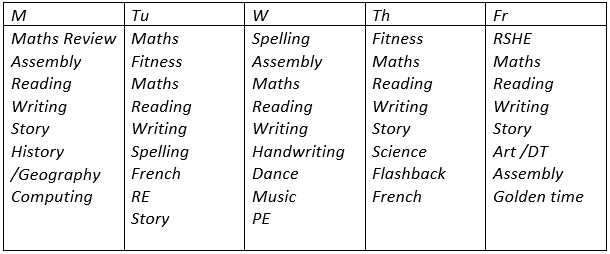
Our home learning guide
In Y6, we will be using Padlet.com to track and update reading activities. Each Monday, a new reading task will be assigned on Padlet, which your child will need to complete by Friday morning. This allows the students to work on their reading assignments at their own pace throughout the week.
Here are a few key points to remember:
- Every Monday, a new reading task will be posted on Padlet.
- Your child should add their response under their name.
- The title of their response should be the date they are writing the record.
- The QR code to access Padlet is below
Please encourage your child to complete their reading tasks and update Padlet regularly. If you have any questions or need further clarification, feel free to contact the teacher.
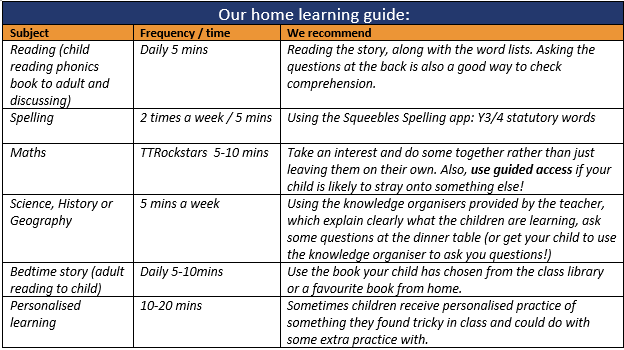
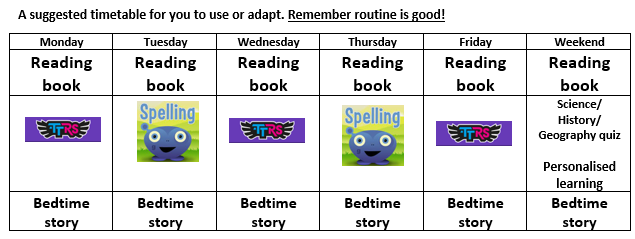
What is the plan for curricular and extracurricular enrichment?
Please note that this is not exhaustive. We often add in more enrichment opportunities throughout the year. These are ones we have planned already.
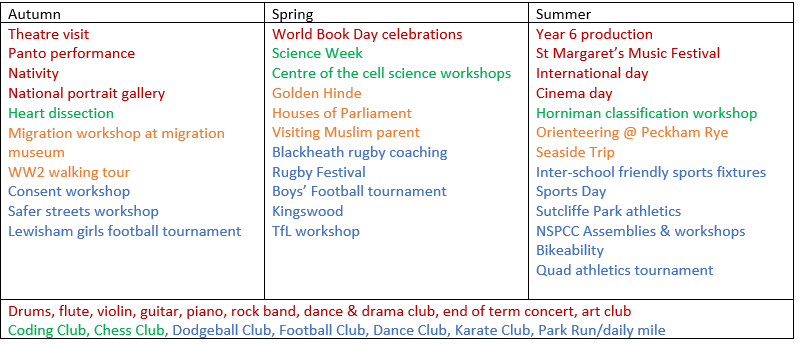
Important things to remember in Year 6
-
Book changing – your child has access to a wealth of books to choose from as and when they need. This can be guided by a teacher, but is often independent.
-
Padlet to be completed once a week.
- Only brief messages at drop-off. We want the teacher in class with the children once the bell has rung!If you need to speak to the teacher for a bit longer, wait until pick-up, send an email via info@stmargaretslee.lewisham.sch.uk or arrange a meeting with the teacher.
- Trainers everyday please, no hoop ear rings and keep long hair tied back.
SATs
12th – 16th May
Year 6 children take statutory assessments at the end of primary school called the SATs.
They will take assessments in:
- Maths (1 x Arithmetic, 2 x Reasoning)
- Reading
- Spelling
- Punctuation and Grammar
We do lots of work and practice in year 6 to ensure that our children are as confident as they can be for these, without needing to panic or worry. It is our teachers’ job to get children prepared for these tests, and whilst we would like everyone to score as highly as they can, it is important to note that the SATs are assessing the school; not the child!
One of the best ways to ensure that your child feels confident during SATs week is by supporting them with personalised learning and encouraging them to read!

